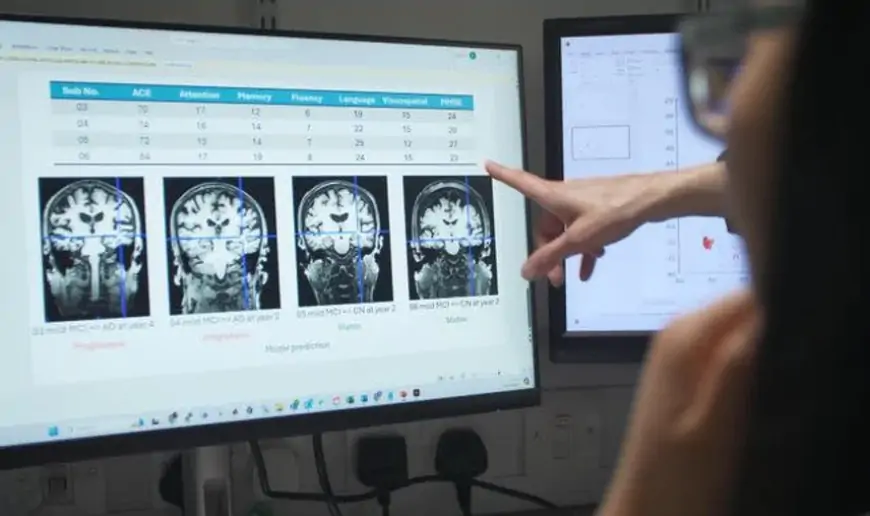New AI tool diagnoses Alzheimer's more accurately than traditional clinical tests
AI outperforms clinical tests in predicting Alzheimer's progression, offering earlier, more accurate diagnoses and insights into the disease's development.

Despite ongoing skepticism about artificial intelligence's role in storytelling and filmmaking, its applications in science are demonstrating significant promise. A recent study highlights that AI can surpass traditional clinical tests in predicting the progression of Alzheimer's disease. This advancement could lead to earlier and more accurate diagnoses, potentially transforming the way we approach Alzheimer's care and research. The ability of AI to analyze complex data patterns more effectively than human practitioners offers hope for more personalized and timely interventions in the fight against this debilitating condition.
This advancement means that individuals showing early signs of dementia could be better informed about the likelihood of their condition worsening. Early and accurate predictions would allow for timely treatments and preventive measures, potentially slowing or halting the progression of the disease.
The study, conducted by a research team from the University of Cambridge, utilized machine learning to train AI algorithms on cognitive tests and brain scans from 410 individuals. By analyzing patterns in cognition and gray matter levels—key to brain function—the AI demonstrated a superior ability to predict the progression from mild cognitive symptoms to Alzheimer's, and to gauge the speed of this progression.
Senior author Zoe Kourtzi, a cognitive computational neuroscientist at the University of Cambridge, notes, "Our tool, which relies solely on cognitive tests and MRI scans, significantly outperforms current methods in predicting the transition from mild symptoms to Alzheimer's and in assessing the rate of progression."
In tests involving 1,486 cases beyond the initial training data, the AI accurately identified individuals who would develop Alzheimer's within three years 82% of the time, and those who would not develop the disease 81% of the time. This represents a threefold improvement over current clinical assessments, offering a substantial enhancement in the diagnostic process. Additionally, the AI could often predict the speed at which dementia would advance.
This breakthrough could aid doctors in pinpointing candidates for emerging treatments and enable deeper exploration into Alzheimer's onset. Understanding the disease's early stages is crucial for developing effective interventions.
Kourtzi emphasizes, "AI models are only as effective as their training data. We ensured ours was based on routinely collected data from memory clinics, not just research cohorts, making it applicable in real-world healthcare settings."
The new AI approach is also cost-effective and non-invasive, avoiding the need for tissue or blood samples, which is advantageous given the constraints on healthcare resources. Moreover, it can provide reassurance to individuals concerned about age-related memory issues, clarifying whether their symptoms indicate an increased risk of dementia or not.












































